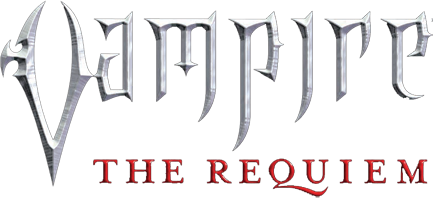“Thus the Dark Father spake: that what you once were is not what you now are. As a mortal is a sheep, so are the Damned wolves among them. That role is defined by nature—wolves feed on their prey, but they are not cruel to them. The role of predator is natural, even if the predator himself is not.”
Cross sets his copy of The Testament of Longinus still open, pages down, on his lap. He’d taken it from Gilroy’s last lecture at the Moore House with no real intention of reading the thing. And yet, here he is, making his way through “The Rule of Golgotha.”
He’s sitting in his car, the engine cut, parked down by the river off Marina View Drive, reading it by streetlight. He’d stopped to look at the water, clear his head, but for some reason he’d suddenly thought of the Testament sitting in his glove box.
Curiosity is what spurred him to take it out, open it up, start reading. But as he did so something else, something stronger than mere curiosity, began taking hold. A feeling that Cross can’t deny: so much of the text seems familiar, makes sense. Like the passage he’d just read, the way it acknowledged his unnatural condition and yet set out a clear, and necessary, role demanded by that condition; an acknowledgment of his utter separation from the herd that nonetheless assigned him a duty in the order of things.
More than that, the words promise something that Cross thirsts for, speaking to a drive that—while buried deep down—smolders and burns continually within him: a lust for answers, for meaning, for direction. He’s a pragmatic man, one who has learned how to take care of himself no matter his undead condition. And his sire had been likewise pragmatic, doing what he could before his untimely demise to help Cross prosper in his nightly existence. Still Vic had never seen fit to provide Cross with any sort of explanation as to the how or why of what they are, and Cross had never bothered to ask.
But now that Vic is gone and Cross is on his own, in a new city, struggling to find his place, that desire to know seems to grow night by night. And even if he’s never been a believer, the prospect of a God doesn’t seem so outlandish anymore, given his current condition. Indeed, the idea of a Divine force, one that has a plan for Cross and his kind, provides a strange sort of comfort.
Cross picks up the book and reads the next passage:
“Remember, O childer, that though you yet bear the form of man, you are transformed by holy censure. No longer is it your purpose or your prerogative to live the three score years and ten of the children of Adam. No longer shall you sense your heart beating within your breast, feel the satisfaction of a day’s toil, or enjoy the comfort of the marriage bed.”
“Tell me about it,” he mutters to himself. And yet, despite his defensive sarcasm, somewhere, on some level, something begins to stir. He reads on.













 Presence
Presence Status
Status
 Draft this Post
Draft this Post
